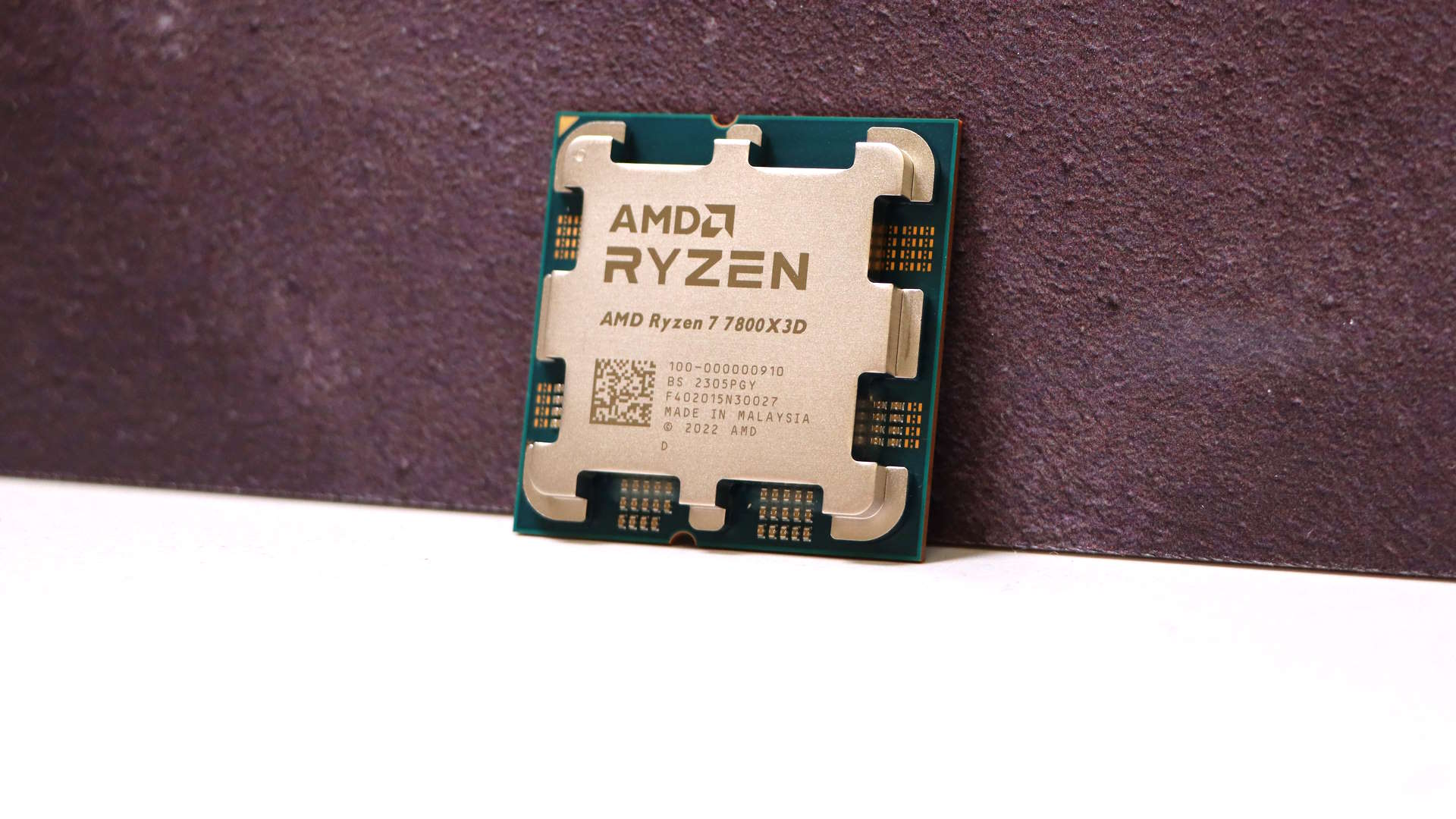Our Verdict
It feels like AMD has saved the best for last with its Zen 4 CPU releases, delivering us a chip purely dedicated to PC gaming that can match—sometimes beat—any other processor around. If you want to do anything else with your PC there are better options, but for pure gaming power and supreme efficiency, the Ryzen 7 7800X3D is a fantastic CPU.
For
- Top gaming performance
- Super efficient
- Cool running
Against
- High price compared with an i5 13600K/F
- Comparatively weak outside of gaming
PC Gamer's got your back
There is a very strong argument to be made for the AMD Ryzen 7 7800X3D being the best gaming CPU around right now. It's certainly the best gaming chip that AMD has ever made, but it's also capably outperforming Intel's top CPU when it comes to gaming frame rates, and is doing so for a lot less cash.
It's also a lot less thirsty, too.
That's possibly one of the most intriguing things about the 3D V-Cache processors of the Zen 4 generation—just how much more efficient they are than the first top-end chips of the Ryzen 7000-series. In fact, with every subsequent release of this new generation AMD has improved its latest processor range, making the previous ones almost redundant.
The Ryzen 9 7950X3D was the first of the new 3D V-Cache chips to hit our test bench, and it offers a mix of high-end gaming performance and a full 16-cores of Zen 4 processing. But its hybrid design, which offered one eight-core chiplet (or CCD) with the extra 64MB of L3 cache fused on top of it and another CCD without, demanded some extra hoops for the operating system to jump through, and also sacrificed some of a standard 16-core chip's raw multithreaded performance.
The Ryzen 7 7800X3D, however, is as straightforward as AMD's 3D V-Cache gets. There's one eight-core chiplet with extra cache, and no messing around with provisioning or applications scratching their heads to figure out which of the big CPU's CCDs it ought to be using at any one time.
So, does that make it a better dedicated gaming chip? Well, it's not necessarily faster—which highlights how well AMD actually delivered on the 7950X3D's hybrid design—but it makes far more sense as the CPU at the heart of your next gaming PC.
AMD Ryzen 7 7800X3D verdict
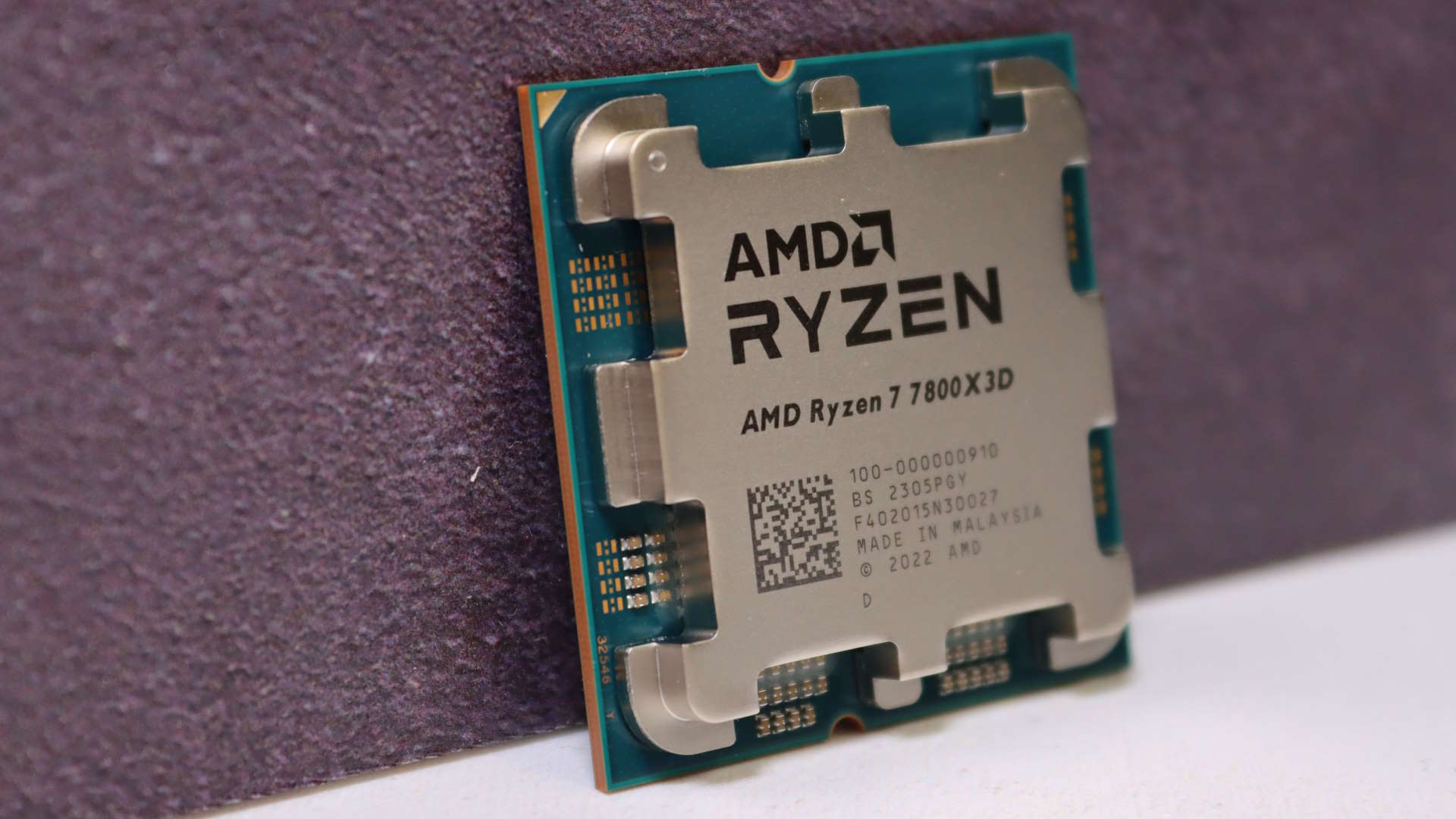
Is the Ryzen 7 7800X3D any good?
Simply put, if you want the absolute highest gaming frame rates, and care not a jot for the CPU-intensive distractions of rendering or encoding, then AMD's latest chip is the processor for you. It wears its gaming predilections on its sleeve, and delivers performance that could make a Core i9 blush.
No jack of all trades, but certainly a master of one, and that's gaming.
It's seriously efficient, too, and that combination of gaming power and low electrical power makes this new 3D V-Cache processor a tantalising choice for your gaming rig. Now that AMD's AM5 platform has matured we're finding more affordable motherboard options every day, and DDR5 memory, and PCIe 4.0 SSDs seem to be constantly dropping in price as well.
The value argument for Intel's Raptor Lake platform is starting to look ever thinner when you can build an impressively future-proof PC from AMD's affordable options.
At $450 it's more expensive than the more versatile Core i5 13400F, but until Intel can get a handle on its chips' power demands AMD's best gaming CPU is by far the most elegant. The Ryzen 7 7800X3D is no jack of all trades, but it is certainly a master of one, and that's gaming.
AMD Ryzen 7 7800X3D specs
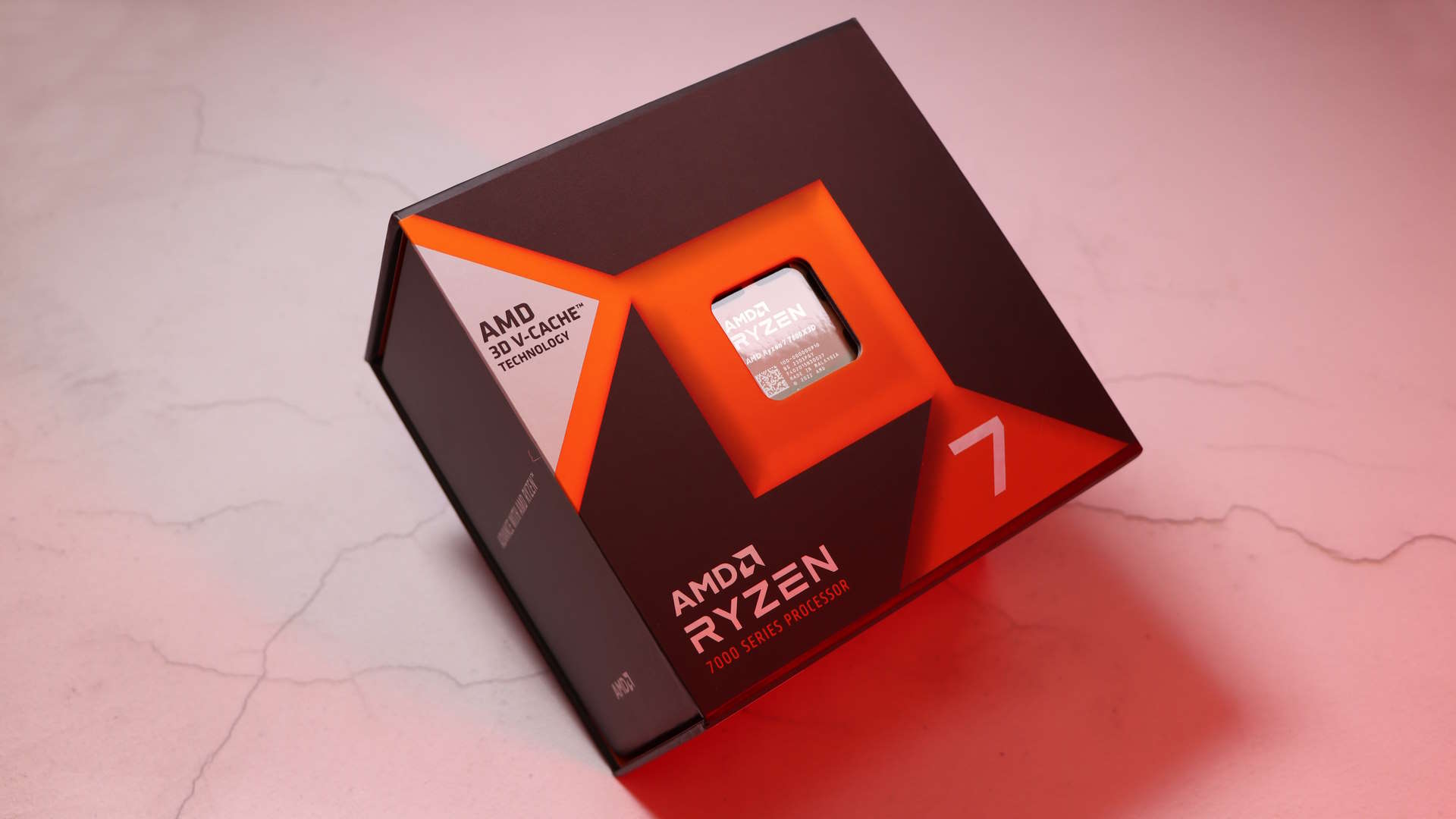
What's inside the Ryzen 7 7800X3D?
The Zen 4 architecture inside the new 7800X3D is a known quantity by now. It's mostly a derivative spec of the old Zen 3 design, but here built on the TSMC 5nm process for the CCD and 6nm for the I/O die. The bigger news at launch was the addition of PCIe 5.0 and DDR5 support from the get-go, that and a new socket with a funky new heatsink design.
There's a little more L2 cache in the Zen 4 CPU make-up, giving 1MB of L2 for each core, and some front end optimisations, which along with the higher clock speeds of the main range has delivered a welcome bump in Ryzen processor performance. Even if the core counts have remained the same.
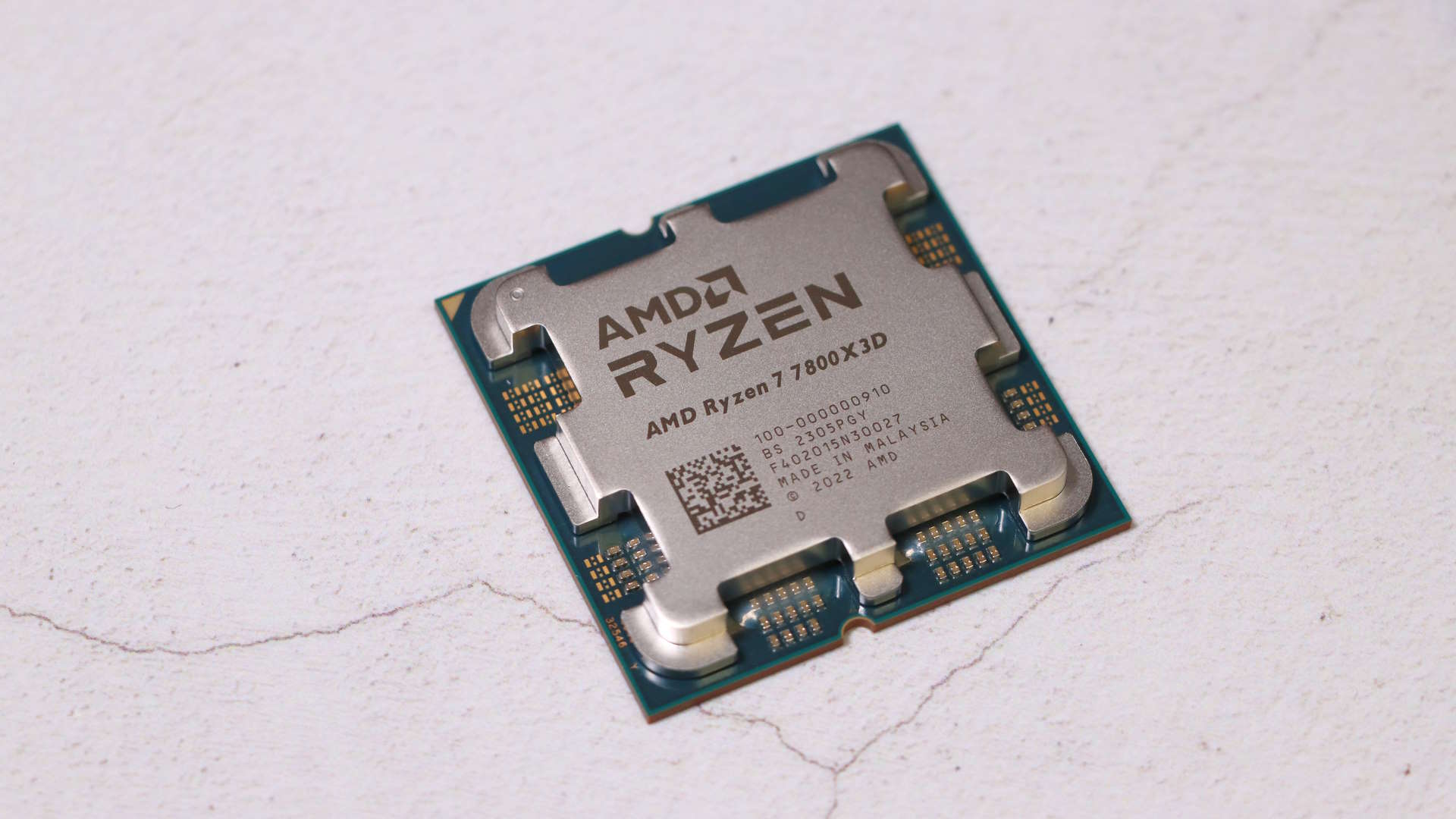
Architecture: AMD Zen 4
Socket: AMD AM5
Lithography: 5nm CCD | 6nm IOD
Cores: 8
Threads: 16
Base clock: 4.2GHz
Boost clock: 5GHz
L2 cache: 8MB
L3 cache: 96MB (inc. 64MB 3D V-Cache)
TDP: 120W
Price: $450
But the 7800X3D goes further in one way, while taking a step back in the other. This is a resolutely eight-core CPU in the same vein as the Ryzen 7 7700 and Ryzen 7 7700X, so this 16-thread design alone is not new for a Zen 4 chip. But the extra 64MB L3 cache mounted on top of the eight-core CCD is.
The compromise is—as with the Ryzen 7 5800X3D which kicked this whole cache-heavy enterprise off—about clock speeds.
Where the 7700X can deliver up to 5.4GHz and the 7950X up to 5.7GHz, the 7800X3D is resolutely stuck at just 5GHz. Yeah, we're at a point where I can say 'just' about hitting 5GHz regularly out of the box.
The Ryzen 7 7800X3D is still a 120W chip, however, which puts it in a higher bracket than the 105W 7700X. Though, having run through all my testing now, that TDP number is starting to feel a little delusive considering just how efficient the chip is in operation. Even while delivering effectively the highest gaming performance of any chip we've tested.
AMD Ryzen 7 7800X3D performance and benchmarks
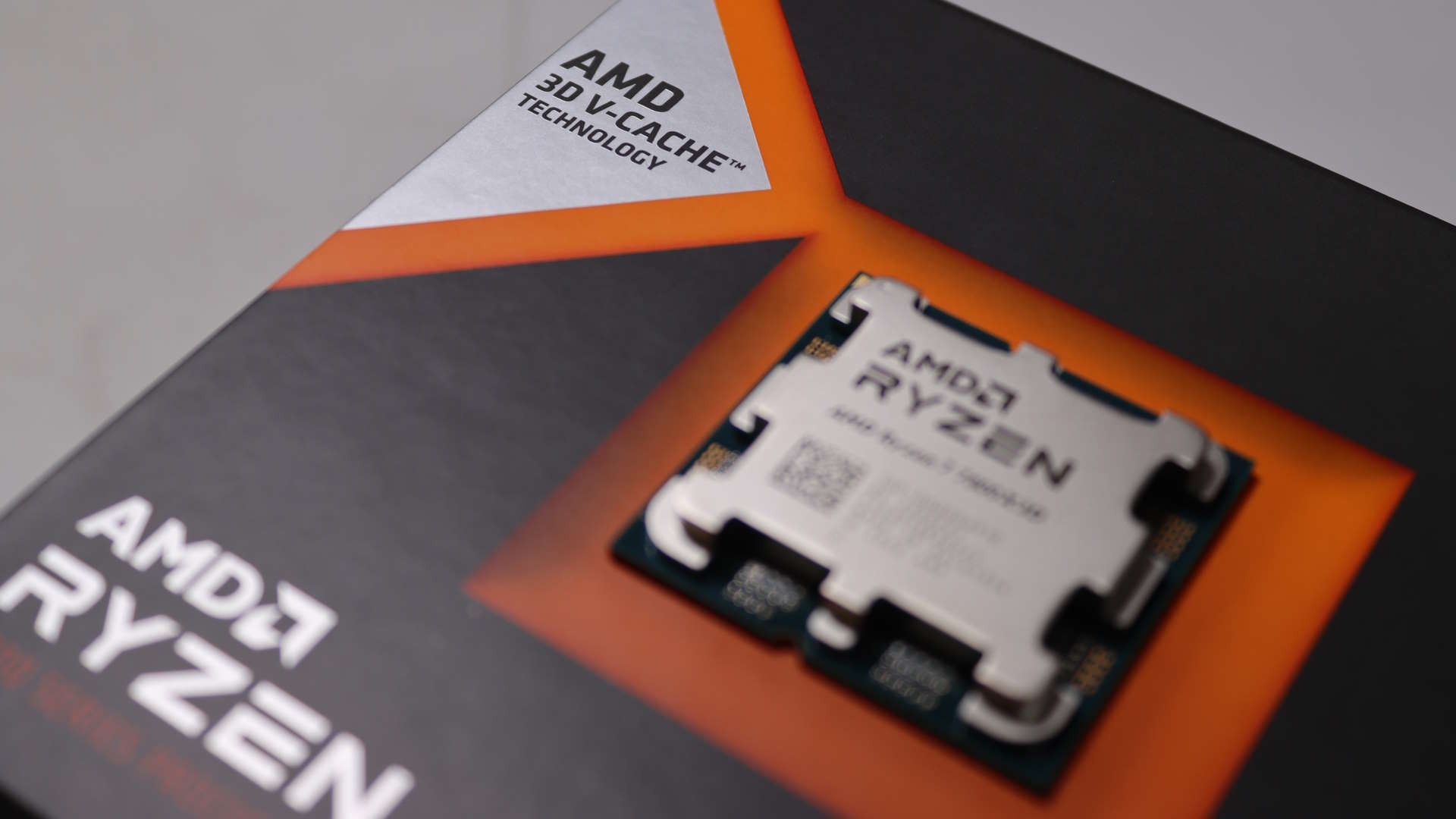
How does the Ryzen 7 7800X3D perform?
AMD
Motherboard: ASRock X670E Taichi
Memory: G.Skill Trident Z5 Neo DDR5-6000 CL30 2x 16GB
Intel
Motherboard: Asus ROG Z690 Hero
Memory: G.Skill Trident Z5 RGB DDR5-5600 CL36 2x 16GB
Graphics card: Nvidia RTX 3080 10GB
Storage: 2TB Corsair MP600 Pro XT | 1TB WD Black SN850
Cooler: Corsair H100i RGB
PSU: NZXT 850W
Chassis: DimasTech Mini V2
The fact the 7800X3D can deliver at worst the same gaming frame rates as both of the most expensive processors in the business—the Ryzen 9 7950X3D and the Intel Core i9 13900K—is hugely impressive. Especially considering it's nominally far slower than both in terms of clock speeds.
Though, admittedly, the peak 5.7GHz clock speeds of the 7950X3D are a little misleading given they're specifically for the CCD without the 3D V-Cache attached to it. The CCD with the extra cache fused onto it is likely to be performing at the same speed as that powering the 7800X3D, and that's the one tasked with the majority of gaming workloads.
That's why there's so little between the AMD chips in terms of gaming performance, but still, the Core i9 13900K is a 5.8GHz processor with Intel's classic gaming heritage to lean on. And it still gets beat by this $450 chip.
In the AMD-supplied documentation I should still find the 7800X3D getting beating by the 7590X3D for the most part, but that's not the experience I've had in our standard PCG testing suite. Granted, it's not conclusive by any means; there are more games and apps than one human could possibly test ahead of launch. But it's our regular suite, doesn't favour either red or blue side of the CPU divide, and highlights what a chip we have on our hands.
Gaming performance
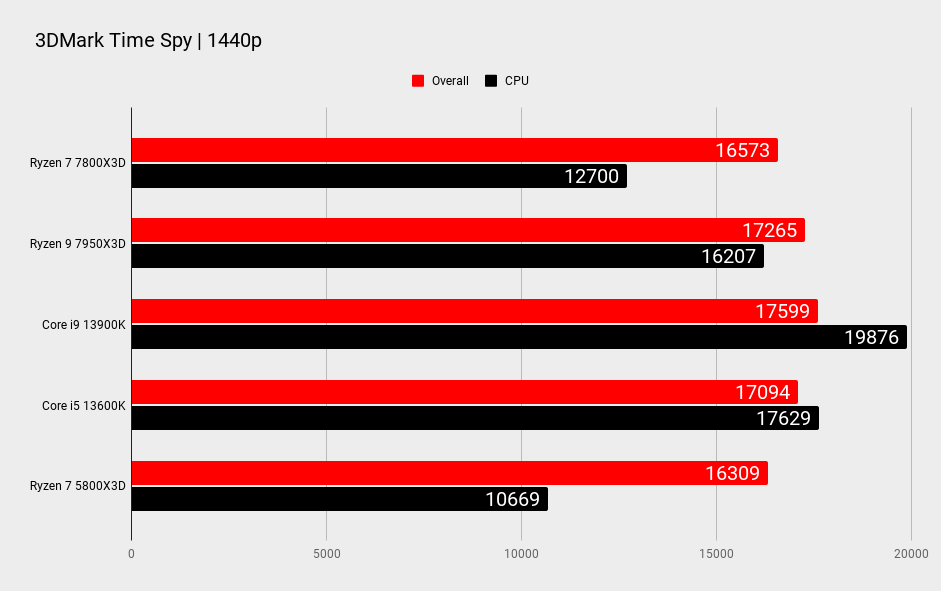
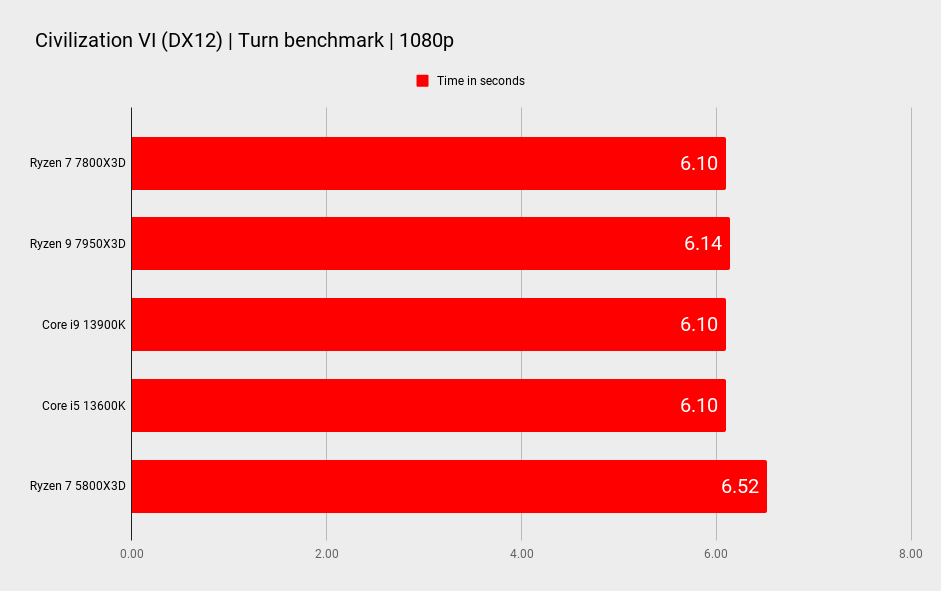
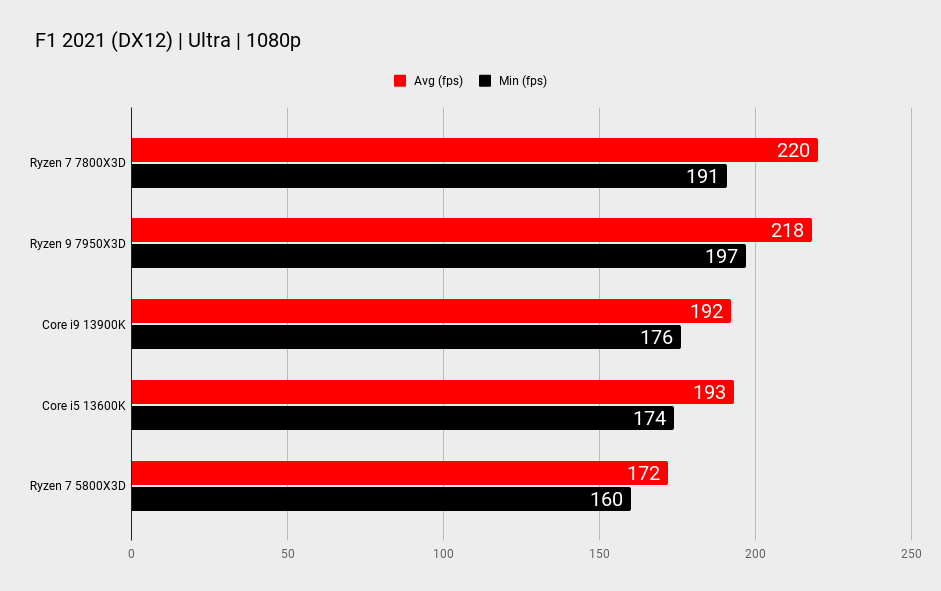
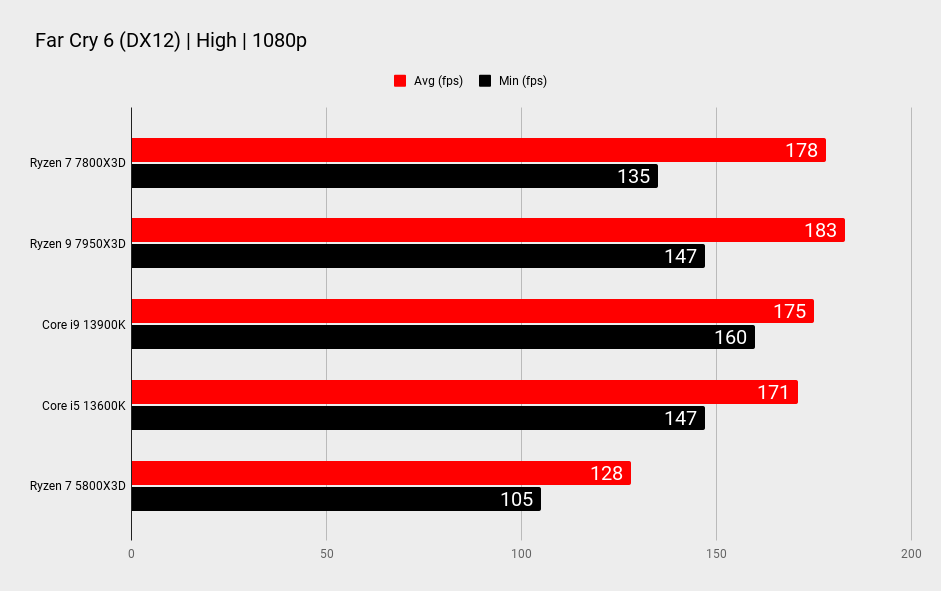
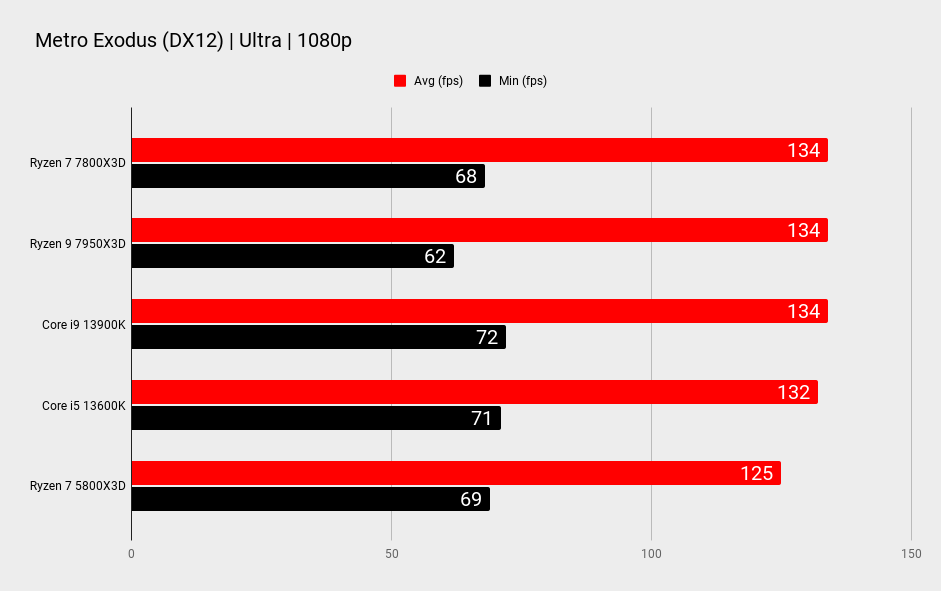
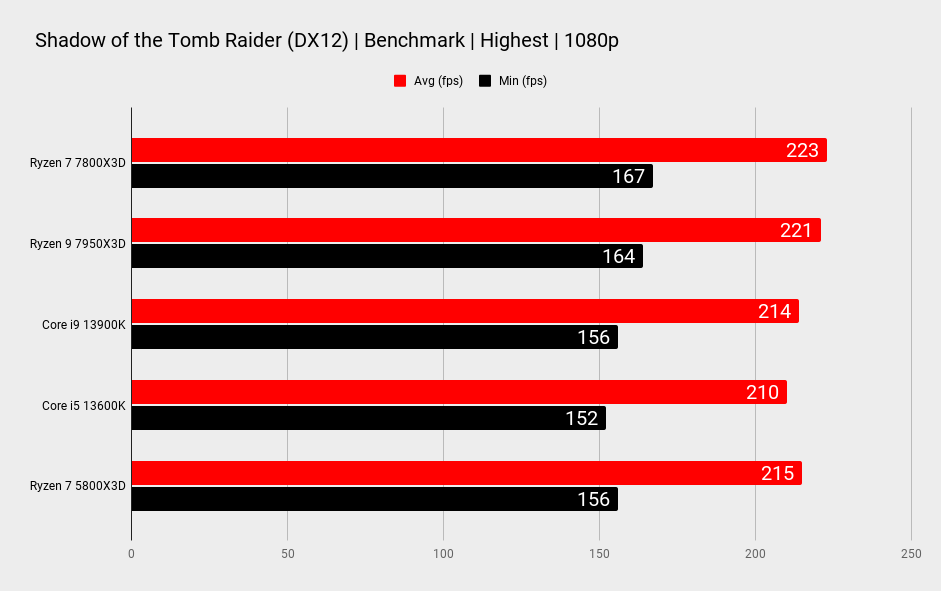
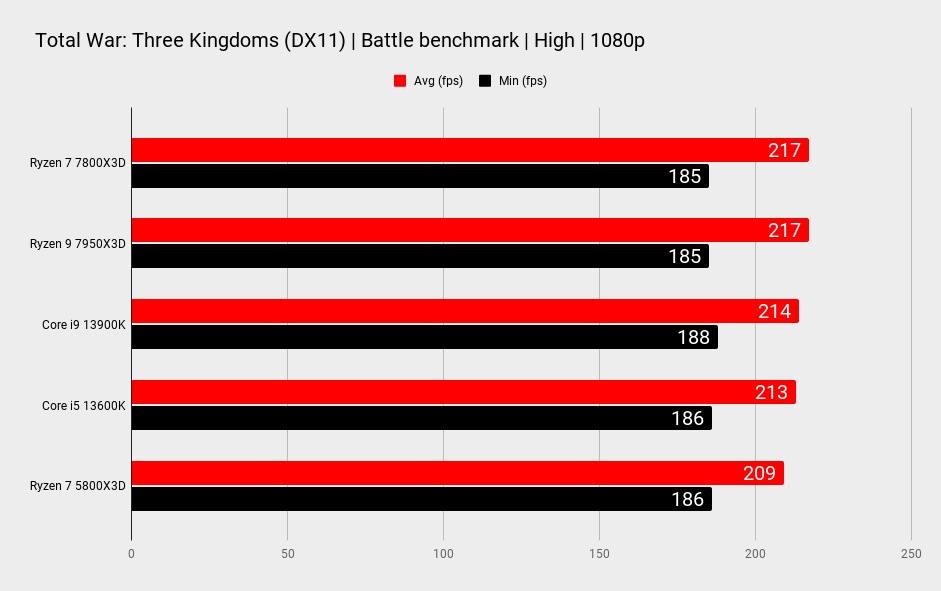
If you're after an all-rounder then move along. The 7800X3D isn't that versatile.
Switching from gaming to more creative/productivity apps and you can see why we're talking about this as a gaming-focused processor. Sure, it's got the edge on the last-gen Ryzen 7 5800X3D with the same core count, but with the Zen 4 architecture, but compared with similar chips at the same price point it's markedly off the pace.
That's where Intel's top Core i9, Core i7, and Core i5 CPUs will still make the cache-heavy AMD chip look positively laggardly. If you're after an all-rounder, a processor that's equally adept at multi-threaded task loads as it is with gaming, then move along. The 7800X3D isn't that versatile.
The rendering and encoding benchmarks, as well as the memory bandwidth tests highlight where the slower clock speeds owing to the 3D V-Cache are holding it back. But, honestly, that's not what this is about. This is as close to being a pure gaming CPU as it's possible to be, and a hella efficient one to boot.
System performance
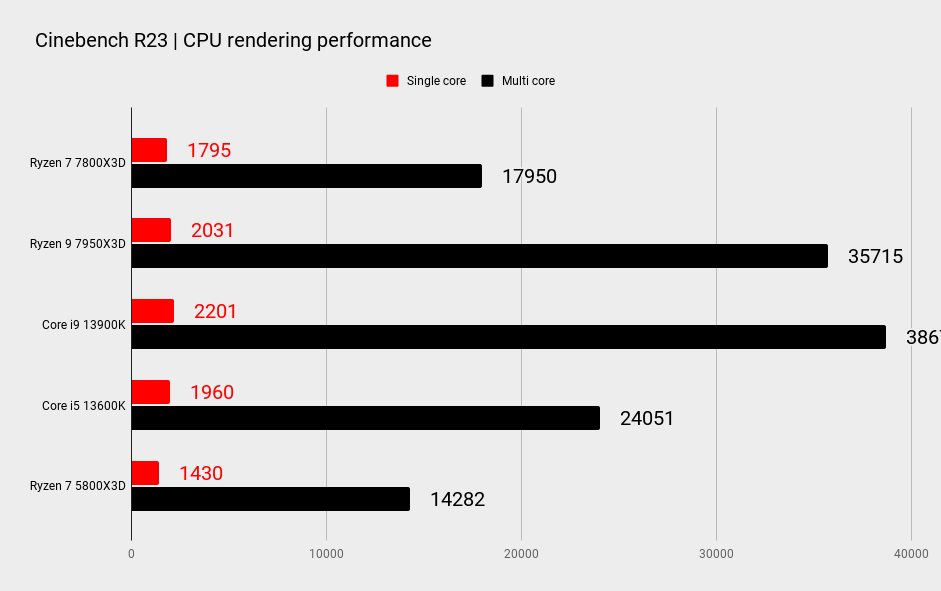
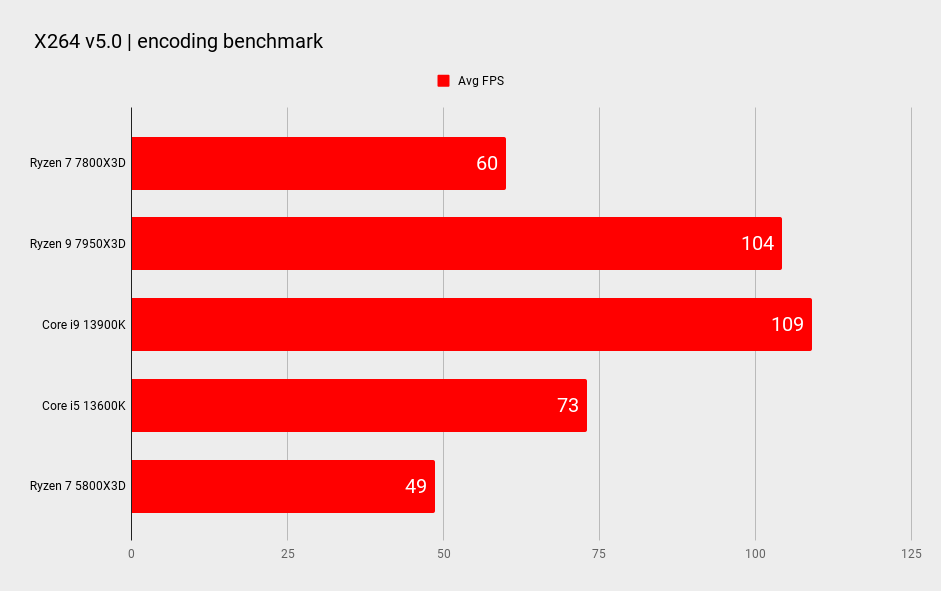
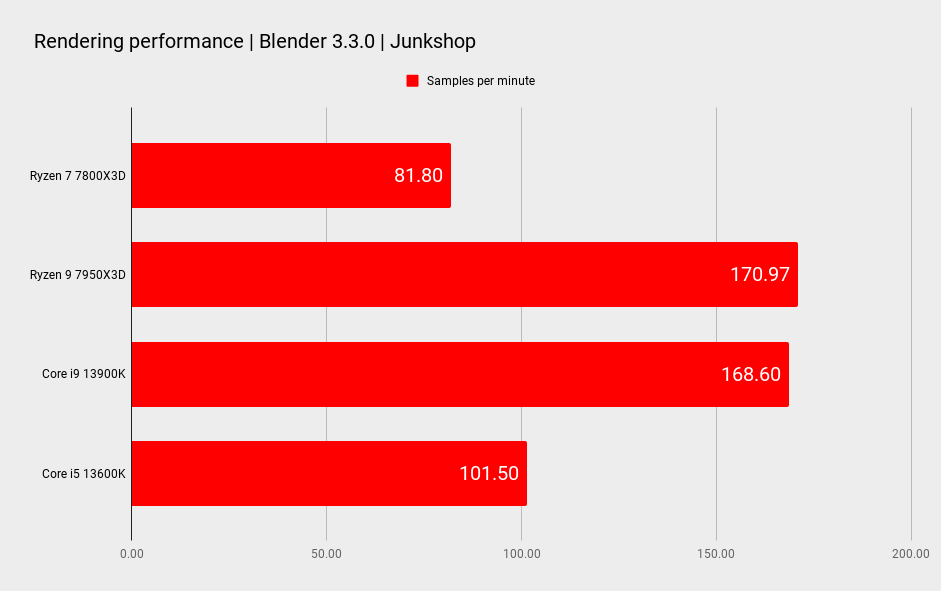
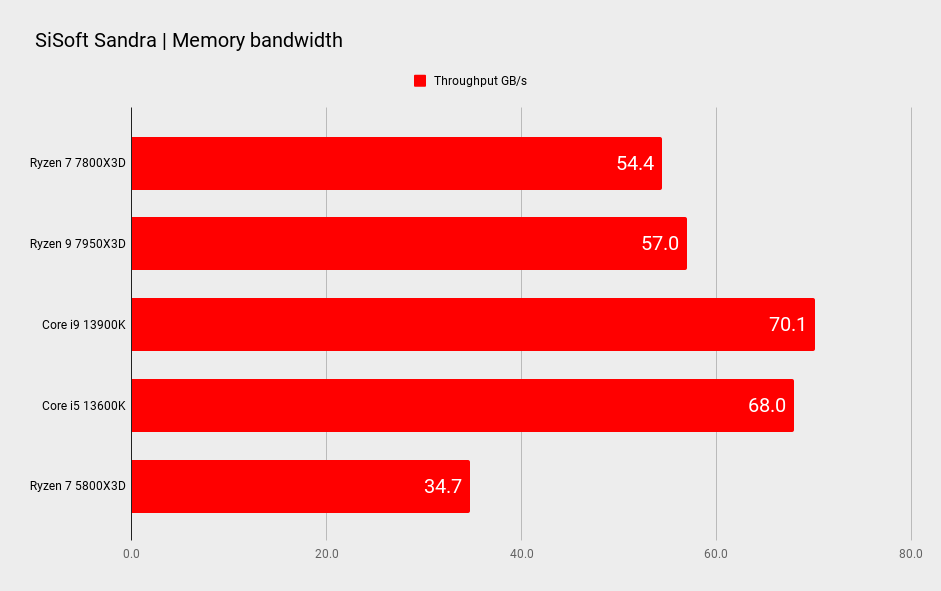
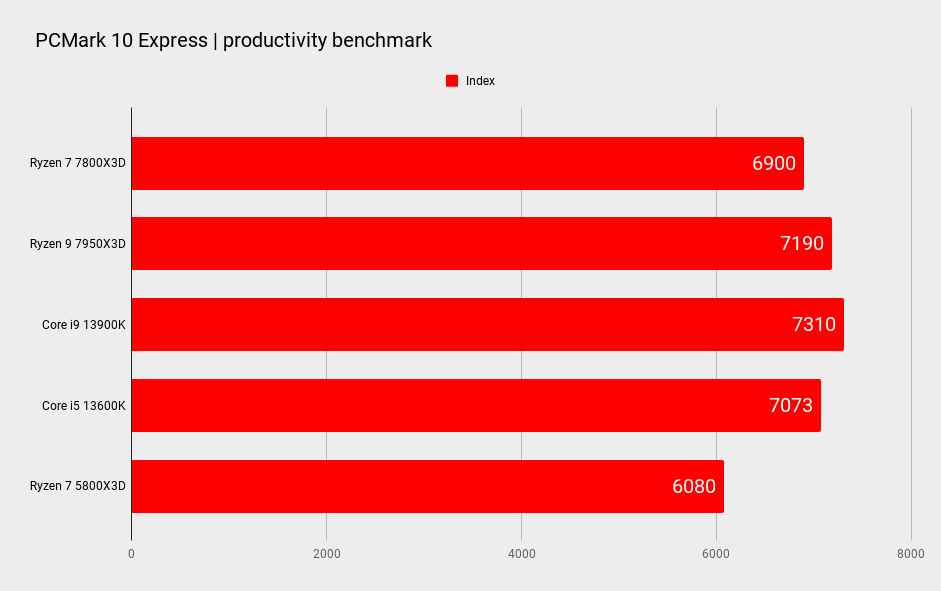
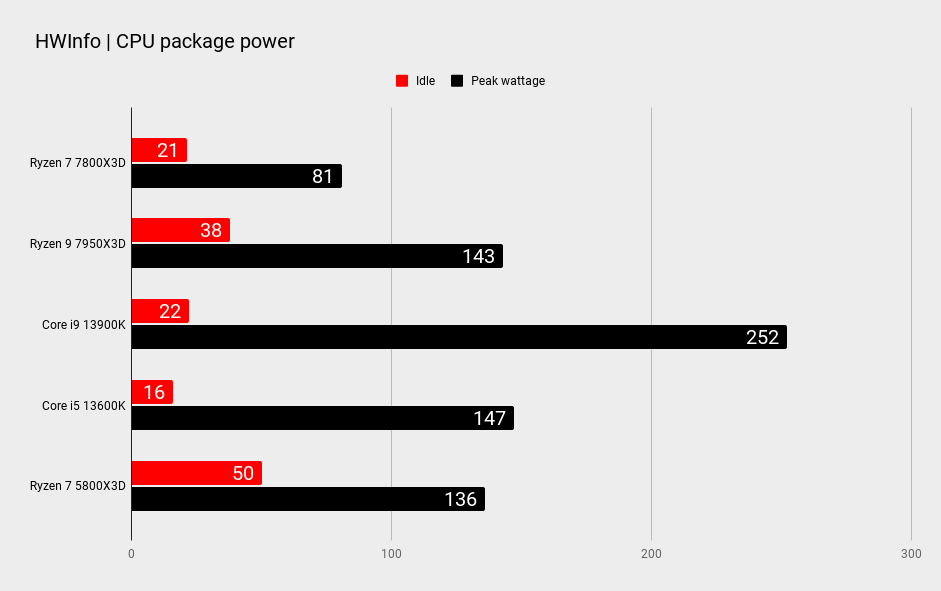
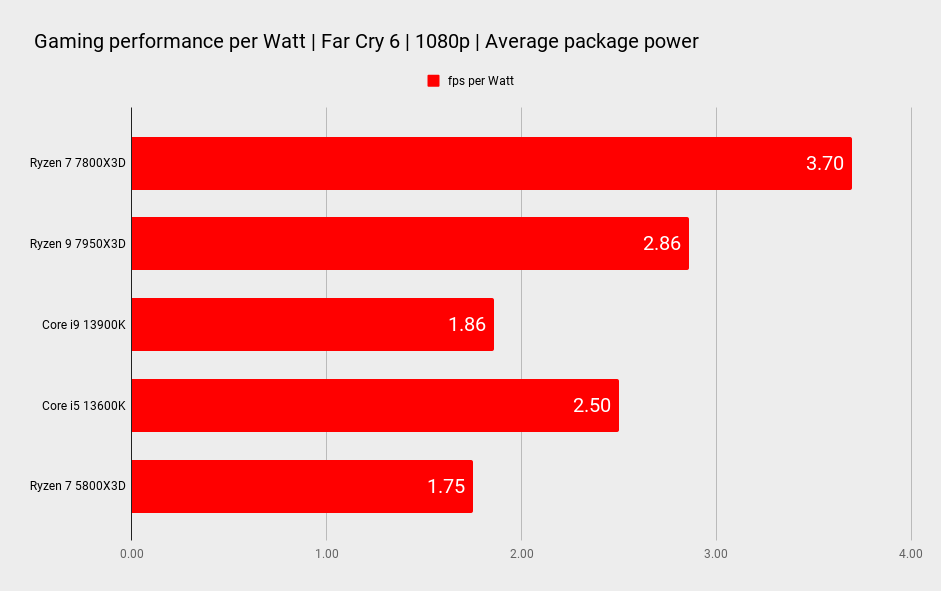
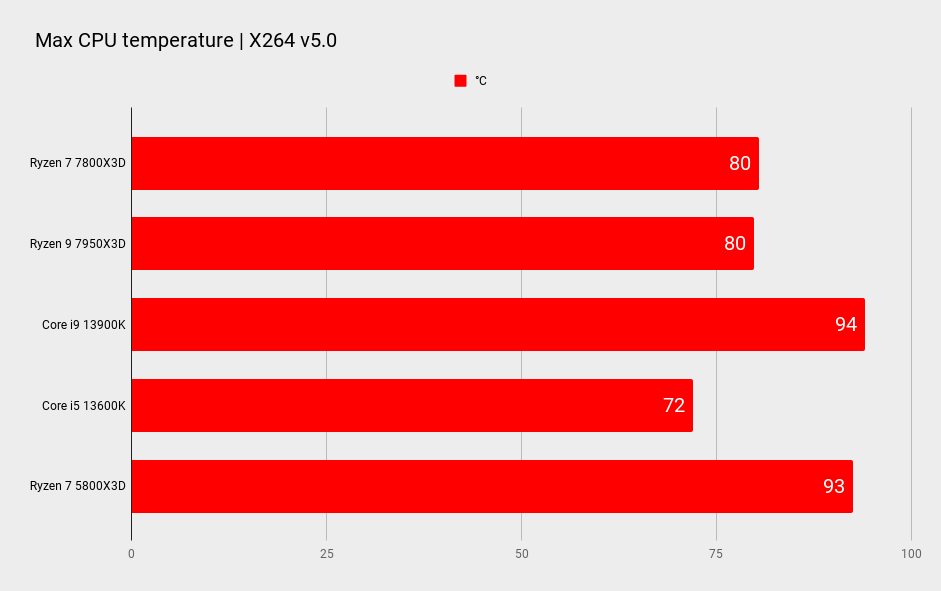
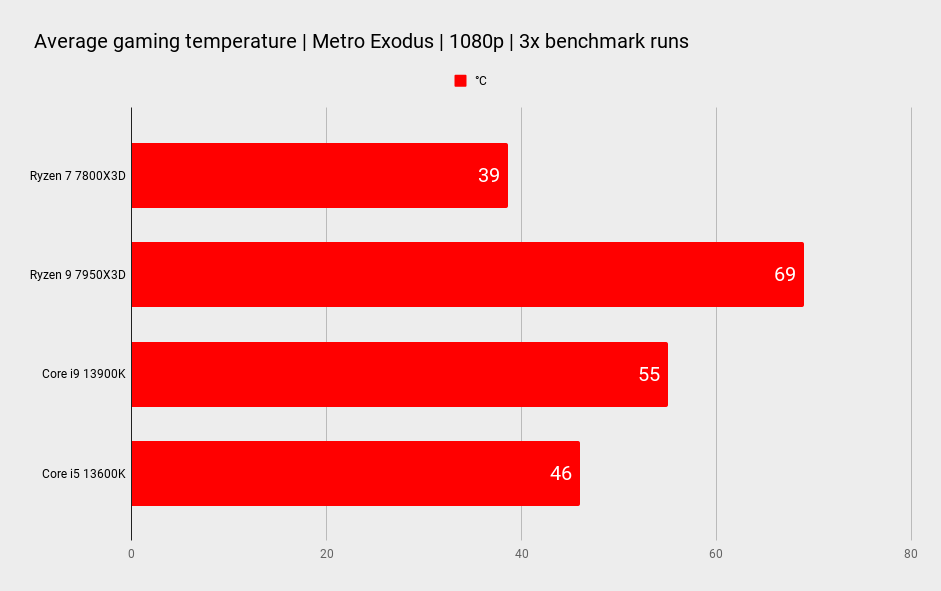
At 81W of peak package power measured in HWInfo over the duration of my testing, the 7800X3D is able to deliver gaming performance at double the efficiency of the last-gen 3D V-Cache chip and practically double the efficiency of the Core i9 13900K. That power-sipping nature also makes it impressively cool, too, with my measurements topping out at 80°C under load. That's under full multi-threaded load, with the actual gaming numbers coming out at roughly half of that during three loops of Metro Exodus.
You want a cool and quiet gaming PC that's capable of the absolute fastest gaming frame rates? Then grab a 7800X3D, people.
AMD Ryzen 7 7800X3D analysis
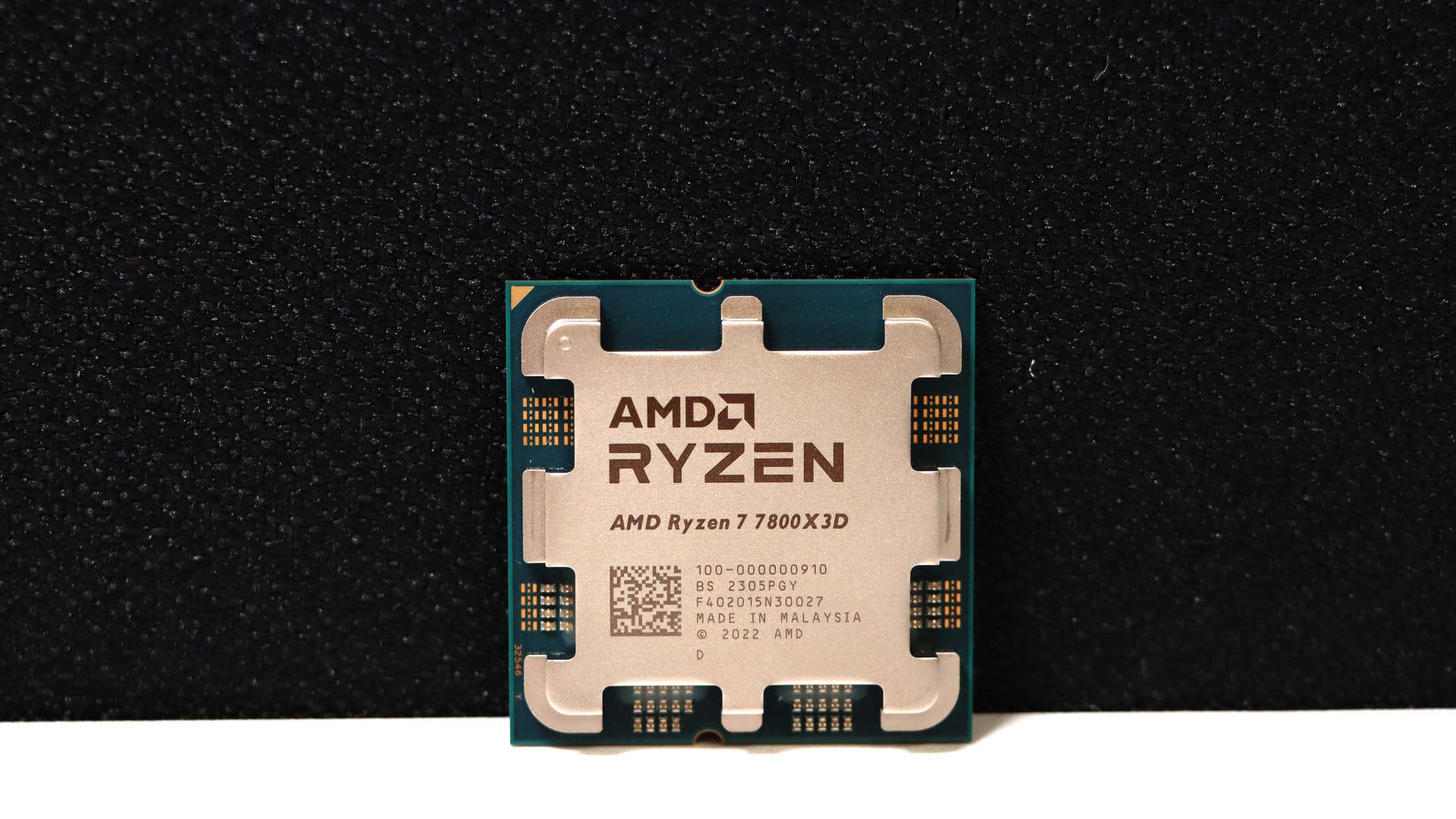
What does the Ryzen 7 7800X3D mean for gamers?
So, why the caveats? Why is this not unequivocally the best gaming CPU? Because your processor is not the be-all-and-end-all of gaming performance. Our numbers are run at 1080p to highlight relative performance differences between CPU architecture, and those deltas can disappear the higher up the resolution stack you go, where your choice of graphics card has far more impact on your frame rates.
And at $450 it's a lot more than the Intel Core i5 13600K/F. That's a ~$300 chip that sports 14 cores and 20 threads of compute power. It will also top 5GHz and can actually be overclocked.
Sure, the Intel i5 delivers slightly slower 1080p gaming frame rates at 1080p, but that performance delta will all but vanish at 1440p and 4K. And in the productivity stakes you've then got a more rounded processor, one which is more capable at multi-threaded workloads if you're into doing anything with your PC other than purely gaming.
You could almost feign some green credentials building your system around the 7800X3D.
Plus you get another $150 to spend on your graphics card if you're looking at building a new machine from scratch. Though, admittedly in these times that doesn't necessarily equate to a higher tier of GPU…
But those are the sensible facts and figures, and the Ryzen 7 7800X3D is still the fastest gaming CPU I've ever tested. So, if you want the absolute highest possible frame rates the extra cacheola on top of this Zen 4 chiplet is going to do the business.
It's also the most energy efficient gaming CPU around, too. You could almost feign some green credentials building your system around the 7800X3D. The fact it's significantly lower power, and more efficient in terms of frames per watt, than even Intel's Core i5 13400F is seriously impressive.
My only sadness comes from the fact that AMD is unlikely to give us a Ryzen 5 with 3D V-Cache. A Ryzen 5 7600X3D with this sort of gaming performance would certainly stop a lot of gamers from spending more on a Ryzen 7 or a Ryzen 9 CPU, and so capitalism is probably going to make this as far down the stack as the excellent cache tech goes.
It feels like AMD has saved the best for last with its Zen 4 CPU releases, delivering us a chip purely dedicated to PC gaming that can match—sometimes beat—any other processor around. If you want to do anything else with your PC there are better options, but for pure gaming power and supreme efficiency, the Ryzen 7 7800X3D is a fantastic CPU.

Dave has been gaming since the days of Zaxxon and Lady Bug on the Colecovision, and code books for the Commodore Vic 20 (Death Race 2000!). He built his first gaming PC at the tender age of 16, and finally finished bug-fixing the Cyrix-based system around a year later. When he dropped it out of the window. He first started writing for Official PlayStation Magazine and Xbox World many decades ago, then moved onto PC Format full-time, then PC Gamer, TechRadar, and T3 among others. Now he's back, writing about the nightmarish graphics card market, CPUs with more cores than sense, gaming laptops hotter than the sun, and SSDs more capacious than a Cybertruck.
